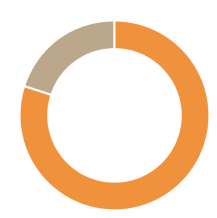Coronavirus disease COVID-19: advice for employers (updated 29/05/20)
The World Health Organization (WHO) has declared the coronavirus outbreak a global pandemic. It’s crucial that employers and employees are aware of the correct steps to take in stemming the spread of the virus, to protect people and organisations.
NB: this article was written before FirstCare rebranded to GoodShape on 30.10.21
Our employer's guide brings together the most up-to-date sources of information and outlines the steps that FirstCare is taking to support its clients and their employees.
Updated 29th May 2020
The status of the COVID-19 outbreak in the UK is changing daily. We will update this blog as regularly as possible during what is a period of unprecedented demand on our service. We are also sending our clients direct updates on changes to our service, as and when they occur.
For the most up-to-date advice, please click on the links below:
- NHS 111 - for advice if you have symptoms
- NHS - for coronavirus information and advice
- UK Government - advice on protection, employment, business, travel, and status of COVID-19 in the UK
Getting tested for COVID-19
As of 29th April 2020, the NHS 111 website has been updated with instructions on how to get tested for COVID-19 if the online triage suggests a user has symptoms.
If you suspect you have symptoms and wish to complete the online triage, visit: https://111.nhs.uk/covid-19/
As of 28th May 2020, anyone with coronavirus symptoms in the UK can now be tested (and people working or living in care homes can be tested even if they don't have symptoms).
The test can be arranged at a regional test site or by requesting a home test kit. Pritority will be given to:
- essential workers in England, Scotland, Wales and Northern Ireland
- anyone in England, Scotland, Wales and Northern Ireland over 5 years old who has symptoms of coronavirus and lives with an essential worker
- children under 5 years old in England who have symptoms of coronavirus and live with an essential worker (this test must be performed by a parent or guardian)
For a full list of essential workers, and to find out how to arrange a test, please visit: https://www.gov.uk/guidance/coronavirus-covid-19-getting-tested
What is COVID-19?
Novel (meaning ‘new’) coronavirus causes COVID-19, a disease that can effect your lungs and airways.
It is one of a family of viruses that cause disease in animals, several of which have ‘jumped’ to humans, notably SARS and MERS which have caused more than 1,500 deaths since 2002.
There is currently no vaccine for COVID-19 and it's believed it will take several months to develop one.
Symptoms
From what is known about COVID-19 so far, the symptoms are similar to a seasonal cold or flu, and in most cases people have made a full recovery.
The elderly and those with underlying health conditions, however, are at much greater risk from COVID-19, and should consult NHS 111 immediately if they are affected by any of the following symptoms:
- New, continuous cough – this means coughing a lot for more than an hour, or 3 or more coughing episodes in 24 hours (if you usually have a cough, it may be worse than usual
- Difficulty breathing / shortness of breath
- High temperature (i.e. you are hot to the touch on your chest or back of your neck)
- Loss or change to your sense of smell or taste - this means you've noticed you cannot smell or taste anything, or things smell or taste different to normal
Stay alert, control the virus, save lives
With effect from 13th May 2020, the Government has slightly eased its restrictions, "to return life to as near normal as we can, for as many people as we can, as quickly and fairly as possible in order to safeguard livelihoods, but in a way that is safe and continues to protect our NHS."
To see the current restrictions, visit: Coronavirus outbreak FAQs: what you can and can't do. (NB: this article includes guidance which applies in England, but also includes links to guidance specific to Scotland, Wales and Northern Ireland)
People are still advised to stay at home as much as possible, but among the reasons you may leave home is to go to work, if it cannot be done from home.
Who should travel to work?
Since 23rd March 2020, the Government has required that people only travel to work if it can't be done from home. On 10th May 2020, Prime Minister Boris Johnson stressed that "anyone who can’t work from home, for instance those in construction or manufacturing, should be actively encouraged to go to work."
Non-essential businesses have been forced to close with effect from 23rd March 2020. A review on the 16th April 2020 resulted in the closure being extended for at least a further three weeks, when the situation will be reviewed again.
On 25th May 2020, the Government announced a timeline for non-essential retail businesses to re-open, provided they were COVID-19 secure. Outdoor markets and car showrooms can re-open from 1st June, with other businesses following on 15th June.
Key / Critical Workers are employees whose work is critical to the COVID-19 response or who work in a number of critical sectors. Those who have children of school age will be prioritised for education provision. See this article for a list of the critical sectors.
Schools will start a wider, phased reopening from 1st June for Primary and 15th June for Secondary, making them open to pupils from selected year groups. School leaders should consult the Government's guidance for Preparing for the wider opening of schools.
Ensuring employee safety in the workplace
All reasonable steps should be taken by employers to help people work from home, including - for example - by providing suitable IT and equipment.
If it is impossible for your employees to work from home, please refer to the Government's Guidance for employers and businesses on coronavirus (COVID-19) which advises on how to operate business safely - including sector-specific guidance - while preventing further spread of the virus.
Update 11th May 2020
In addition to the guidance above, the Government has issued more specific guidance for employers "to help get Brits safely back to work". The five key points are:
- Work from home, if you can.
- Carry out a COVID-19 risk assessment, in consultation with workers or trade unions.
- Maintain 2 metres social distancing, wherever possible.
- Where people cannot be 2 metres apart, manage transmission risk.
- Reinforcing cleaning processes.
For further detail on these points, see this article.
For the full, sector-specific workplace guidance documents, please visit: Working safely during coronavirus (COVID-19).
How to travel to work safely
Prime Minister Boris Johnson's statement on 10th May 2020 advised that:
- People who can't work from home should go to work.
- To get to work safely, people should avoid public transport, as social distancing must be maintained and therefore capacity will be limited.
- Where possible, people should travel to work by car, or preferably walk or cycle.
How to avoid catching and spreading COVID-19
Viruses spread from person to person in droplets from coughs and sneezes. With no vaccine available yet, COVID-19 has already shown the speed at which it can spread, so it's crucial that people take the following steps to stem the outbreak:
Hand hygiene
- Wash hands with soap and water for at least 20 seconds, especially when arriving at work or home, and before eating.
- Carry and use hand sanitiser where soap and water are unavailable, particularly after touching surfaces in public places.
Social distancing
- Maintain a distance of at least 2 metres (6 feet, or 3 steps) from other people.
- Avoid having visitors to your home, including family and friends.
Don't touch!
Avoid touching your face, particularly:
- Nose
- Mouth
- Eyes
Catch it, bin it, kill it
- Use disposable tissues to cover nose and mouth when coughing or sneezing.
- If you don't have a tissue, cover your nose and mouth with your bent elbow.
- Dispose of used tissues immediately, preferably in a covered bin.
Work from home
Government guidance from 10th May 2020 states that people must stay at home as much as possible, including working from home if you can.
People who should travel to work include:
- those whose work cannot be done from home
- employees whose work is critical to the COVID-19 response
- those who work in a number of critical sectors. (The children of such workers, who are of school age, will be prioritised for education provision. See this article for a list of the critical sectors.)
People who must travel to work should maintain a distance of at least 2 metres (6 feet, or 3 steps) from other people, both during their journey and while at work.
Avoid non-essential travel
- Only use public transport if absolutely necessary, and ensure you observe social distancing rules.
- Travel by car, or preferably walk or cycle.
- Check the Government's foreign travel advice before planning any trip abroad.
Disinfect surfaces
Use sprays and wipes to clean devices and surfaces that are regularly handled, such as:
- computer keyboards
- laptops and tablets
- mobile phones
- desks
- door handles
What is FirstCare doing to help?
Triage, tracking and an early warning system
Since COVID-19 first spread to the UK, FirstCare has tracked and recorded details of suspected, confirmed and self-quarantined cases for our clients.
Through our proprietary software, we are able to provide businesses with an early warning system which can alert them within seconds of absences being reported that there is risk of Coronavirus within their organisation. This gives clients the option to implement their infectious disease protocols earlier than ever possible and work towards minimising the impact on their organisations.
With comparable experience, such as the swine flu outbreak of 2009, we are providing callers with appropriate advice about their situation via our 24/7 nurse service. When employees contact FirstCare with upper respiratory symptoms, our Nurse Advisors will take them through our STRAWS healthcare pathway which includes a patient history, full triage and assessment.
If the nurse advisor identifies any Red Flags (i.e. the COVID-19 symptoms listed above), the service user will be advised to refer to www.nhs.uk or Public Health England for the most up-to-date and relevant guidance.
Sources of further information
“We have been using the GoodShape service since 2007”

Lorem ipsum dolor
sit amet, consectetuer
adipiscing.

Lorem ipsum dolor
sit amet, consectetuer
adipiscing.
Find out how we can help.
Fill out the form below and one of our team will be in touch to arrange a meeting.



